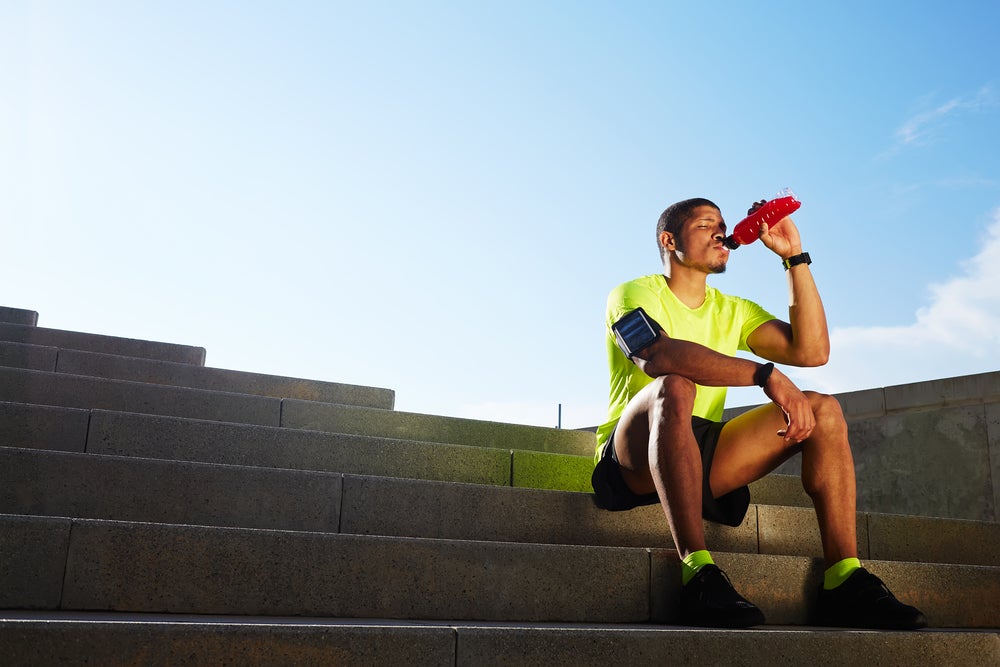4 Common Fueling Mistakes Triathletes Make

Photo: Shutterstock.com
1. Caffeine dependence
Although caffeine is a universally known stimulant that offers a much-needed adrenaline rush, its strategic use is not for every athlete. If tolerable, a safe caffeine dosage is about 3–4 grams per kilogram of body weight consumed about 60 minutes before activity, such as a 4-ounce espresso. Although your morning 1–3 cups of coffee routine is perfectly healthy, more is not better. If you find you “need” caffeine pills or energy drinks to fight fatigue or to get through a workout, you are developing an unhealthy dependence on caffeine, which could be masking a more significant underlying issue like under-fueling, sleep deprivation, stress or overtraining.
RELATED: Caffeine’s Benefits, Risks And Performance Benefits
2. Poor recovery planning
Recovery strategies are dependent upon sport duration and intensity, but to perform well over consecutive workouts you must always refuel, rehydrate and repair. Don’t let your cravings or a busy lifestyle get the best of you after you finish a workout.
Within 60 minutes after training, consume 0.8–1.2 grams per kilogram of carbs and 25–30 grams of protein with 16–20 ounces of water to kick-start recovery. Muscle glycogen replenishment and tissue repair are enhanced when carbohydrates and protein are consumed together. Try this ideal snack or meal: 6 ounce nonfat plain Greek yogurt with 1 banana, ½ cup oats (measured dry, then cooked) and 1 tablespoon nut butter.
RELATED – 30-Minute Countdown: The Post-Workout Snack
3. Haphazard fueling strategies
A precise balance of carbs, fluids and electrolytes are needed to delay the onset of fatigue by sparing liver glycogen, maintaining blood glucose concentrations and offsetting excessive fluid losses from sweating. Athletes often overcomplicate fueling strategies due to a lack of understanding of how to properly use gels, bars, food portables, powders and chews. Whereas too little of an energy intake (carbs, calories) is detrimental to performance, concentrated carb solutions can saturate the intestines, thus affecting carb metabolism by working muscles. Instead, a single carb source (glucose, sucrose or maltodextrin) is preferred. To optimize carbs without causing GI distress, consume 30–60 grams of carbs per hour in frequent dosages every 10–15 minutes. When experimenting with whether increasing the amount of carbs (60–90 grams of carbs per hour) will improve performance, use multiple transportable carbs (glucose, fructose and maltodextrin) over a single source (glucose).
RELATED: Train Your Body To Fuel Efficiently
4. Habitually rewarding with food
Your active lifestyle allows you more calories than the average person, but quality food choices improve health and performance. Rewarding yourself with junk food after a long or hard workout not only increases cravings for unhealthy foods but also undermines the importance of developing appropriate fueling and hydrating habits around or during workouts. While there is nothing wrong with the occasional indulgence, coaxing yourself to get through a workout with the anticipation of guilt-free unhealthy or excessive eating may create a dysfunctional relationship with food. Stop habitually using food as a reward and instead treat yourself with a massage or Epsom salt bath.